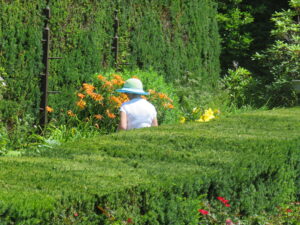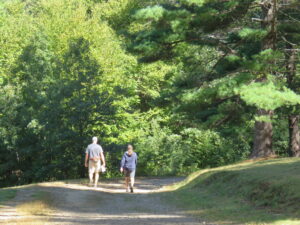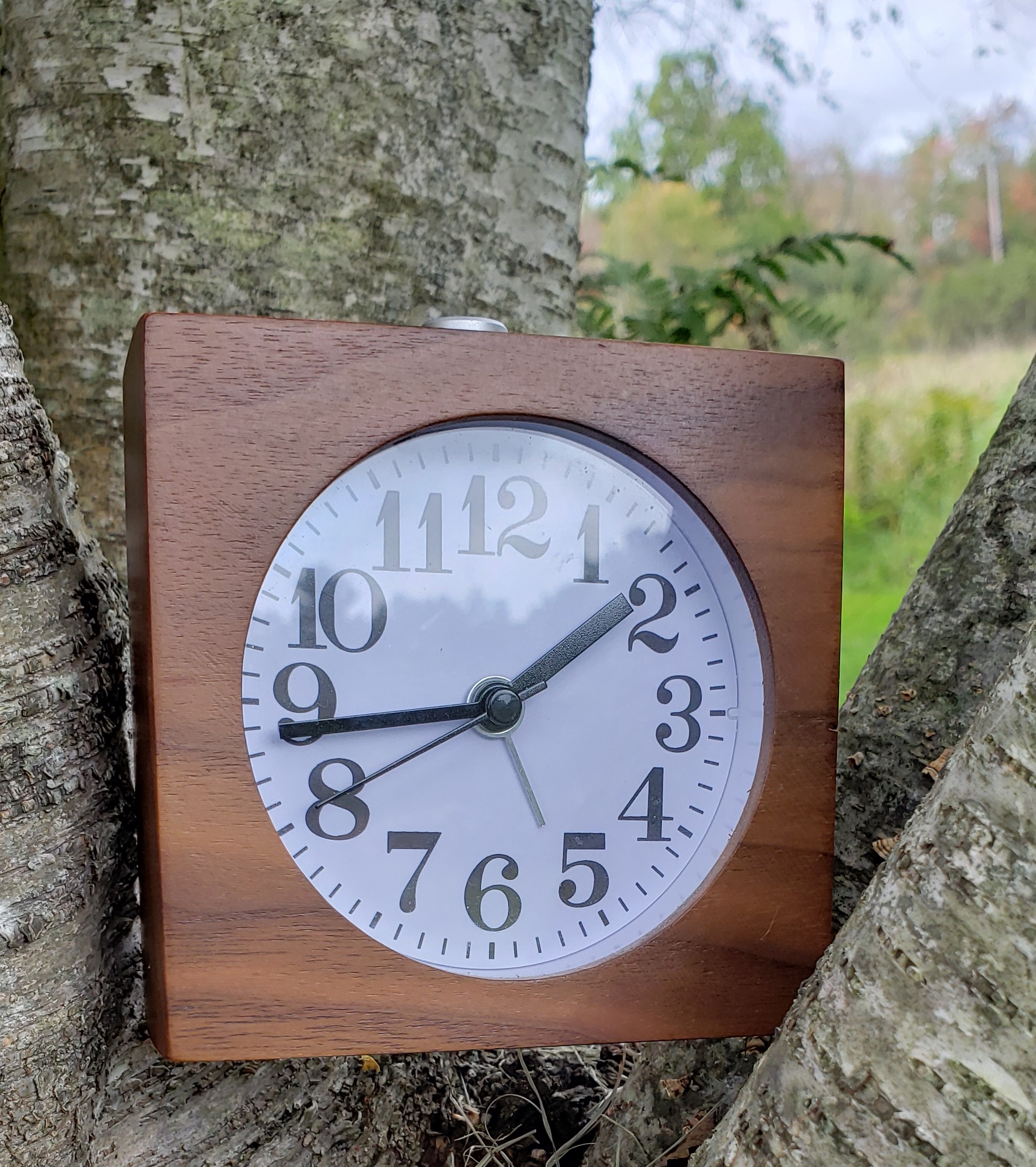How much time in nature is enough?
Share this post
Nature may soothe you, reduce stress, and increase your well-being. But how quickly? Learn how much time in nature it takes to increase your well-being.
During the summer of 2021, I learned what happens to me when I don’t spend time in nature. Due to a perfect storm (pun intended) of weather issues and health problems I was stuck inside most of the summer. July and August saw hurricanes, horrid air quality, a leg injury, and one of those awful summer weather patterns of alternating torrential rain days with high heat index days. There were a few good days, but as luck would have it, I was working indoors for long hours. No daily walks, no morning tea on the deck, few alfresco meals, little beach time, and very few starry nights.

By August, my sleep quality had suffered with difficulties falling asleep and staying asleep. Instead of deep breaths with an ‘ahh’ feeling when I stepped outside, I held my breath. The worries I usually release while outside piled up, and my gratitude practice suffered from neglect. Was I grateful? No. Grumpy? Yes!
Research supports that spending time in natural environments can benefit health and well-being. How? Much of the literature speaks about reducing stress and increasing coping, both of which have wide-spread benefits to your health.Researchers Mayer, et. al. found that exposure to nature increased connectedness to nature, one’s attentional capacity, experiencing positive emotions, and the ability to reflect on a life problem.
When getting outside is a challenge, is there an alternative?
When harsh weather occurs, getting outside may not be a pleasant activity. Outside may also pose safety factors; perhaps a neighborhood is unsafe, air quality might be unhealthy, or maybe walking on uneven or icy surfaces would be unsafe. Another challenge to getting outdoors is time; many of us can’t simply walk out the door at work! Here’s the good news. Environment and Behavior reports that any exposure to nature—in person or via video—led to improvements in attention, positive emotions and the ability to reflect on a life problem. But the effects were stronger among those who actually spent time outside. (Mayer, F.S., et al., Environment and Behavior, Vol. 41, No. 5, 2009).
“Those who contemplate the beauty of the earth find reserves of strength that will endure as long as life lasts.” Rachel Carson
“Look deep into nature, and then you will understand everything better.” Albert Einstein
“In every walk with nature one receives far more than he seeks.” John Muir
“Adopt the pace of nature. Her secret is patience.” Ralph Waldo Emerson
“Nature alone cures.” Florence Nightingale RN
How much time in nature?
Is stepping outside for a quick breath enough, or must you stay outside for a while? How much time should you put aside in your planner to get the full benefit of nature? Lately researchers are looking at these questions.
A study in Japan, where the practice of Forest Bathing (Shinrin Yoku) originated, looked at the correlation of time in nature with stress and coping skills. This study recommends 2 hours. “Compared to no nature contact last week, the likelihood of reporting good health or high well-being became significantly greater with contact ≥120mins (e.g., 120–179mins: ORs [95%CIs]: Health=1.59 [1.31–1.92]; Well-being=1.23 [1.08–1.40]).” (Source: Association between forest and greenspace walking and stress-coping skills among workers of Tsukuba Science City, Japan: A cross-sectional study – ScienceDirect)
Another study also recommended 2 hours per week to enhance health and well-being but clarified that it can be spread across a week. Two hours of time in nature per week works when comprised of either long or several short activities outside. “After a range of covariates had been taken into account, individuals who spent between 1 and 119 mins in nature in the last week were no more likely to report good health or high well-being than those who reported 0 minutes. However, individuals who reported spending ≥120mins in nature last week had consistently higher levels of both health and well-being than those who reported no exposure.” (Source: Spending at least 120 minutes a week in nature is associated with good health and wellbeing | Scientific Reports)
Finally, and especially for family caregivers, here’s some research pertaining to older adults. “The pattern was consistent across key groups including older adults and those with long-term health issues. It did not matter how 120 mins of contact a week was achieved (e.g., one long vs. several shorter visits/week).” (Source: Spending at least 120 minutes a week in nature is associated with good health and wellbeing | Scientific Reports)
What to do with nature

photograph, or simply sit 
visit gardens 
walk 
fish, or simply sit 
go for a ride 
birdwatch 
garden 
walk with your dog
For more ideas, visit TLC’s Free Stress Relief Tools
Therapeutic gardening ideas for elders
Gardening is a terrific way to engage with nature. It’s a purposeful activity; that may appeal to older adults. If you are caring for your elders, you might wonder how to safely help them outside, and how to engage them with nature once you get them out. I’ve been following a Scottish organization called Trellis: Gardening for Wellbeing. They offer wonderful ideas for people needing adaptive gardening and for children, too. I especially like receiving the ideas shared in their emails. Project ideas explained in zoom programs are always available on the website on demand. There’s a page especially for gardening with people with dementia.
How you can get started with nature
So, what shall you do? How will you find 2 hours a week to be in nature? At least some researchers agree that even small doses are ok, as long as your weekly total is 2 hours. That’s roughly 17 minutes a day, or 30 minutes four times a week, or…well, you do the math.
- Set your intention to support your health and well-being by being in nature.
- Consider when you are already outside and make it meaningful. Do you have a 10 minute walk to public transportation? Can you take 15 minutes to step outside on a porch, in a yard, or looking out the window before bed? Make that time a mindful experience of nature.
- Another option is to integrate nature into your day-off exercise routine.
- Remember that actually being outside is best, but a window, video, or other images of nature are helpful.
- Be mindful during your time with or in nature.
- Be well!
The benefits of spending time in nature
Perhaps you already know how nature benefits you. Please share your own personal findings with us on TLC’s Facebook page! You can comment on the post sharing this blog.
As for me, by September, my perfect storm of weather patterns and injury resolved enough to resume walking outdoors, drink tea on the deck (despite heavy dew) and settle myself before sleep with starry rather than cloudy nights. I am better and grateful for my time with nature.
In peace, Gale
